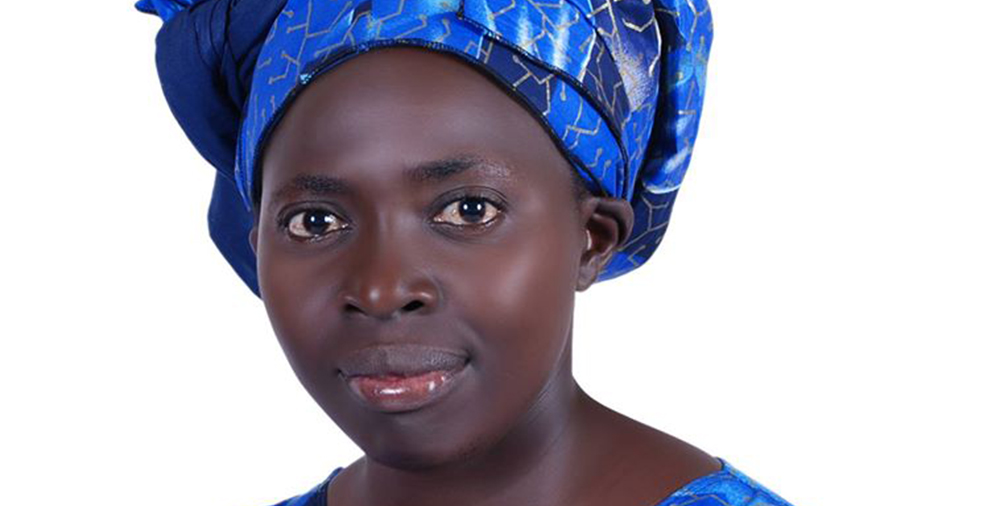Sport has the power to change lives. According to United Nations Women, by teaching women and girls teamwork, self-reliance, resilience and confidence, sport is one of the great drivers of gender equality. Women in sport defy gender stereotypes and social norms, make inspiring role models, and show men and women as equals. These same sentiments are echoed by Amina Atoko, who is championing the promotion of football in West Nile and helping girls shatter glass-ceilings in the process.
A woman of diverse talent and skill, Atako, is an entrepreneur, leader and founder of ‘Women Effort In Education and Development’ (WEED), a community based organization that is luring girls back to school using football.

What inspired you to start WEED?
We started this organization out of a need to solve women issues especially the girl child. After what I went through growing up, I thought it would be good to uplift the girl child to realize her dreams because in this region of West Nile, and basically northern Uganda, we are such a disadvantaged region due to the adverse poverty that many parents go through. The girl child is not valued. You find that many girls in our region are disadvantaged as far as issues of education are concerned. Realizing that you cannot develop especially if you leave the girl child uneducated, we found it very necessary to constitute ourselves with people of vested interests, my colleagues with whom I went to school, we brainstormed and founded this organization called ‘Women Effort In Education and Development’.
You mentioned that you were inspired to start the organization by your background. Please elaborate.
I lost my dad before I was born, so I was brought up by a single mother. I lost my mum when I was in Primary Six. I think my background of growth prepared me the hard way. My aunt brought me up and gave me the opportunity to study though it was not easy. When I went to university she grappled with my tuition and other things, but luckily, I got a sports scholarship in my third year. That is how I was able to complete my study. It is why I believe sports can take you far.
What sports did you play?
Of course by then, there was no football so I used to play volleyball, badminton and table tennis but from what I read, from my little experience and what I have seen happen in other countries, I found sports can advance one’s life.

When was WEED founded?
WEED was founded in 2006. And for the last 10 years we’ve been using this organization to identify talent, identify girls who have dropped out of school and to motivate them through sports to go back to school.
How do you achieve this?
We know sports uplifts spirits and it motivates the girl child. So through sports we have attracted quite many girls to go back to school. We get these girls from different counties in Arua. Last year we even picked some from Yumbe District who were at the verge of dropping out or had dropped out but are talented. We bring them back using their talent and take them back to school.
How do you identify them?
At WEED, we have the Super Weed Football Club, which is a club comprised of girls we have identified and supported by the organization. It has been participating in the district football league. We always have games of trials, friendlies, with other districts like Maracha, Yumbe, and Zombo. We have also participated in the regional qualifiers. So when we go for such games, our target is to identify girls who have the potential but are not in school, we pick them up, bring them here, some are staying with us while others are in schools here so we put them back to school, they continue training and are exposed to other opportunities. After identifying these girls, the schools in Kampala also send their scouts to come and look out for them especially when we have trainings during holidays. It is an added opportunity if a girl we have been supporting is taken by a school in Kampala so they can study for free. So basically that is what we have been doing. We are doing it out of love.

There are many kinds of sports, why football?
You know for a girl child to be able to kick a ball, it means they are kicking a lot of barriers. We know girls are used to playing netball and other sports but football makes them realize their potential because it is a support that has predominantly been played by men. A girl who plays football is not shy and lacks fear due to the high level of aggressiveness the sport requires. So once a girl starts playing football, she becomes liberated.
Let’s talk about funding.
We have not had any funding opportunities and have always used our subscription fees and membership fees to see that these girls go back to school. But with numerous people encouraging us to try and get donors who could support this good initiative, we realized that for us to move ahead, we don’t have to remain a Community Based Organization. We recently had a meeting with the executive to see how we can transform WEED into a local NGO.
What are some of the achievements you have registered?
We have girls who have graduated. After giving them this exposure through sports, many have been able to get opportunities to go to schools in Kampala, completed Senior Six, while others have joined universities. Currently, we have like 5 girls who are completing secondary school in Kampala. If a school takes our girls gives them bursaries to study, we feel that is a step forward.

What are some of the challenges you have faced?
The basic challenge we face is finance. Sometimes we feel overwhelmed because you see a girl who would like to go to school but you cannot absorb everyone because we are funding our operations using our small membership and subscription fees. It would be great if we had the capacity to take back 50-100 girls to school every year but the little we are doing is in the capacity of 10-15 girls annually.
What is your message to women out there?
When we don’t educate a girl child, our society will be left behind. All communities and stakeholders must therefore join hands to ensure that the girl child just like the boy child is educated. We know that an educated woman or girl is a liberated one and can do a lot to develop their community. Uganda’s population is mostly comprised of women, so if you leave such a big number uneducated, then you are creating problems for yourself.


